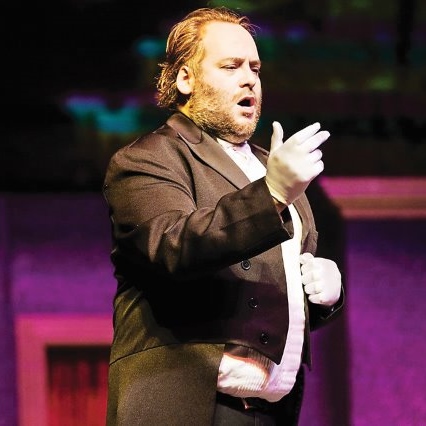
SA

From the bima to singing La Traviata
JORDAN MOSHE
Kitka became cantata as he stepped out of Shabbos into the role of Alfredo in Verdi’s La Traviata at the Johannesburg Theatre on Saturday night, delivering a first-rate opening night performance.
La Traviata is one of the most popular operas of all time, telling a heart-breaking story of love, sacrifice, and tragedy. It premiered in Venice in 1853, and has remained a classic. Producer Pierre du Toit and Sempre Opera brought the show to South Africa audiences this week in Braamfontein, where it will be staged until Sunday.
The SA Jewish Report chatted to Cohen after his performance, getting insight into the demands of operatic music. Cohen, a familiar face and voice at Sydenham Shul, is more than a community cantor, having studied opera at the Tshwane University of Technology.
Although he has had his degree for more than ten years, this was his debut in professional opera on stage, and the stakes were certainly as high as the notes.
“The last time I performed a proper opera was while studying,” said Cohen. “I played parts in operas like Carmen and La Boheme, and the stress was enormous. This was my first appearance in a professional opera, and I did not anticipate the stress it would bring.”
This is unsurprising, as Cohen was cast in the role in mid-April. An active chazzan, businessman, and father, he was given little more than two months to prepare after not having performed in an opera for more than ten years.
“Pierre du Toit was one of my lecturers at university,” Cohen said. “He phoned me the day before I left for a trip to New York to ask if I wanted the role. Although I studied opera, I’d never studied the part, and Du Toit was taking a lot on faith. But I had actually planned to watch La Traviata in New York on my trip, so I took it as a sign that it was meant to be.”
Juggling his various commitments, Cohen devoted hours to memorising his lines and the music in spite of missing some rehearsals which fell over Shabbat. Although his regular stint as chazzan did help somewhat, he says the two styles are very different.
“Chazzanut helped me to some extent. The deeper meaning of both tefilla and opera need to be tapped into to give the singing greater significance, but there’s no crossover in their respective genres. While one can load singing in shul with certain amount of emotion, opera singing requires a specific channelling of emotion. A chazzan is not necessarily an opera singer.”
Although he was the sole debutante in the cast, Cohen took to the role naturally, and said that he found that his character and the plot resonated with him as a Jew. Though the story is set in 19th century Paris, he believes it remains pertinent to us today.
“There are human issues which Verdi addresses that remain relevant to us as people, and as Jews. Alfredo loves a woman who is scorned by society, but his father won’t support him. It’s all about yichus [lineage], loyalty to parents, avoiding scandal, and making our own choices. In the frum [observant] world today, these continue to be concerns. What children want is replaced with what their parents want.
“My background as a religious Jew helped me to understand this. The opera questions whose life you’re living, whether you care what society thinks, and how you navigate its contradictions. We need to express who we are.”
For Cohen, singing is an expression of life. He stresses that we all need to find our way of achieving this. “To say that you must follow your heart is a cliché. What I’m saying is that you don’t need to explain yourself to anyone, especially when you’re trying to find the nourishment your soul needs. If you have a passion for something, you must do it, because that’s the talent G-d gave you. If people try to supress it, they could be preventing you from achieving your purpose.”




